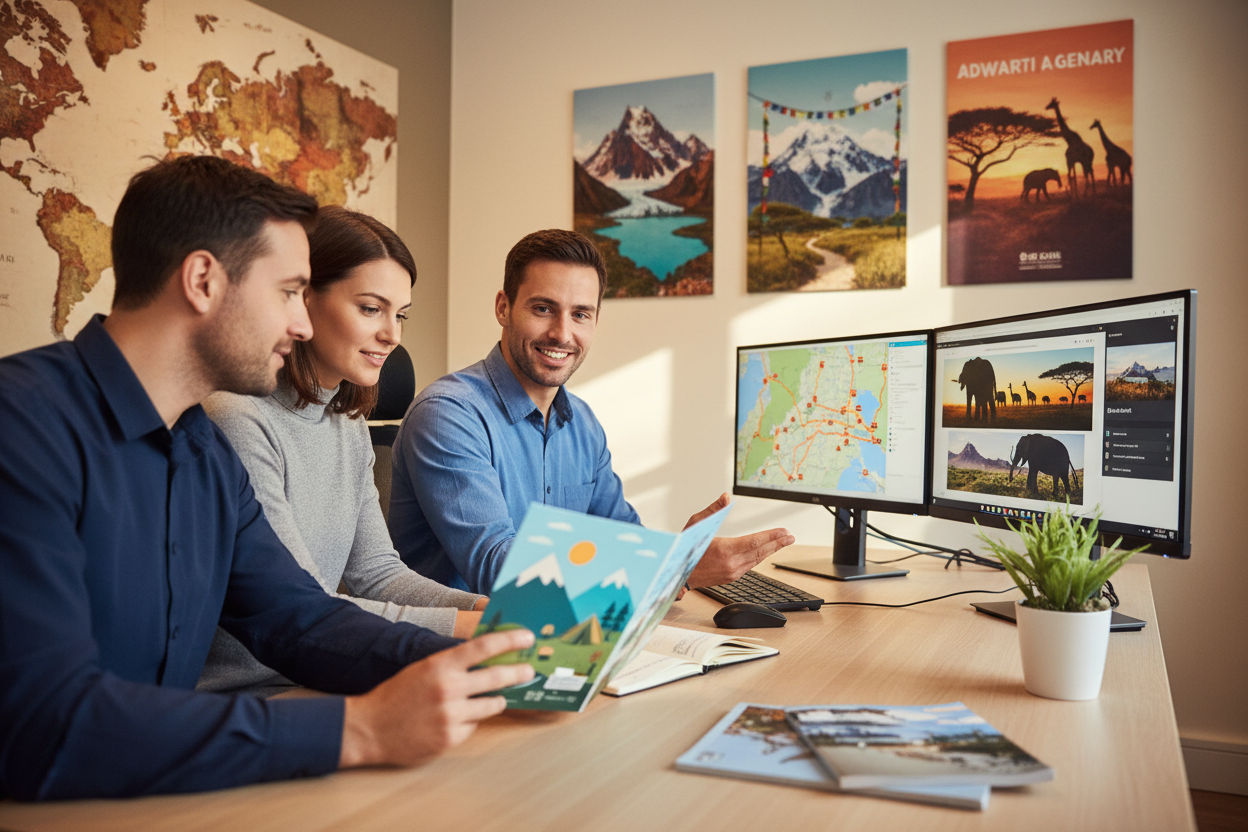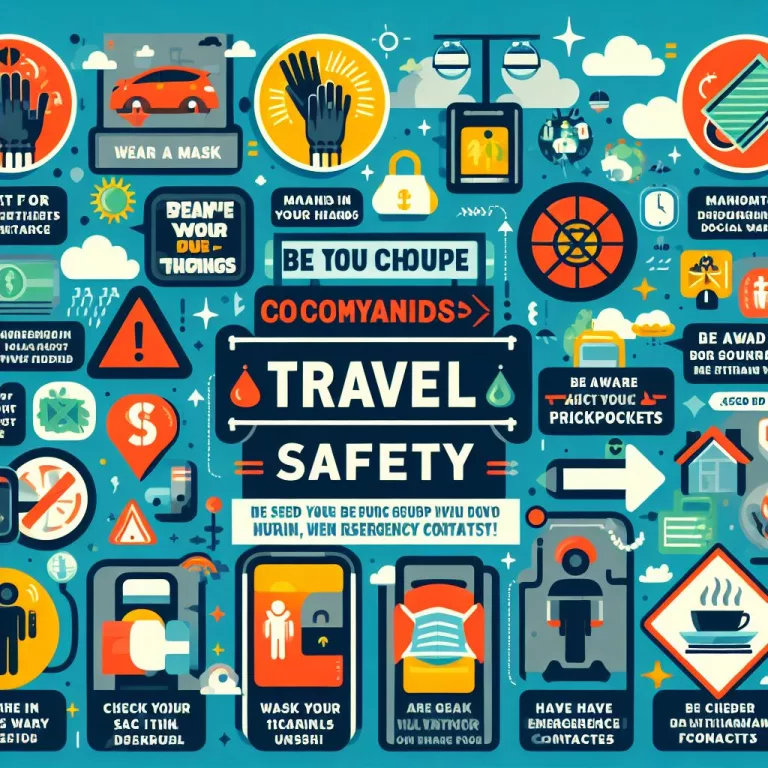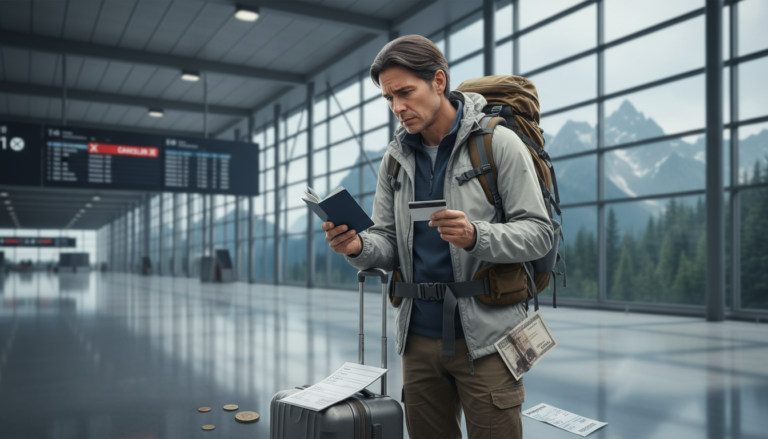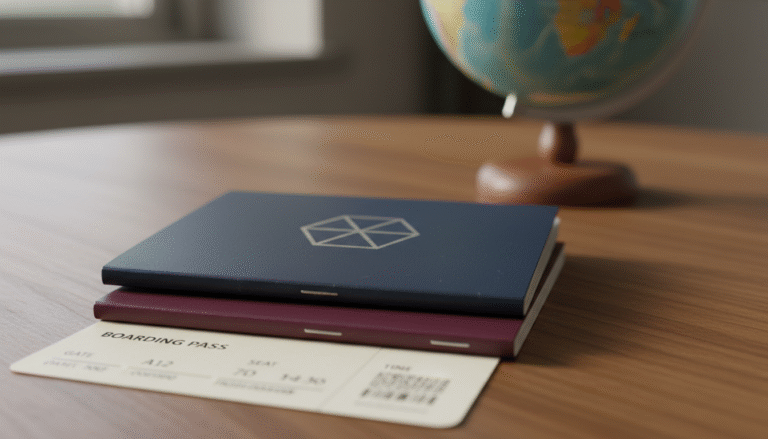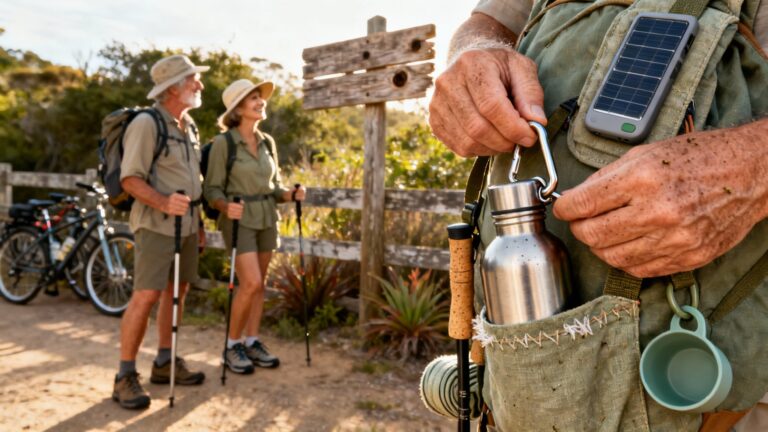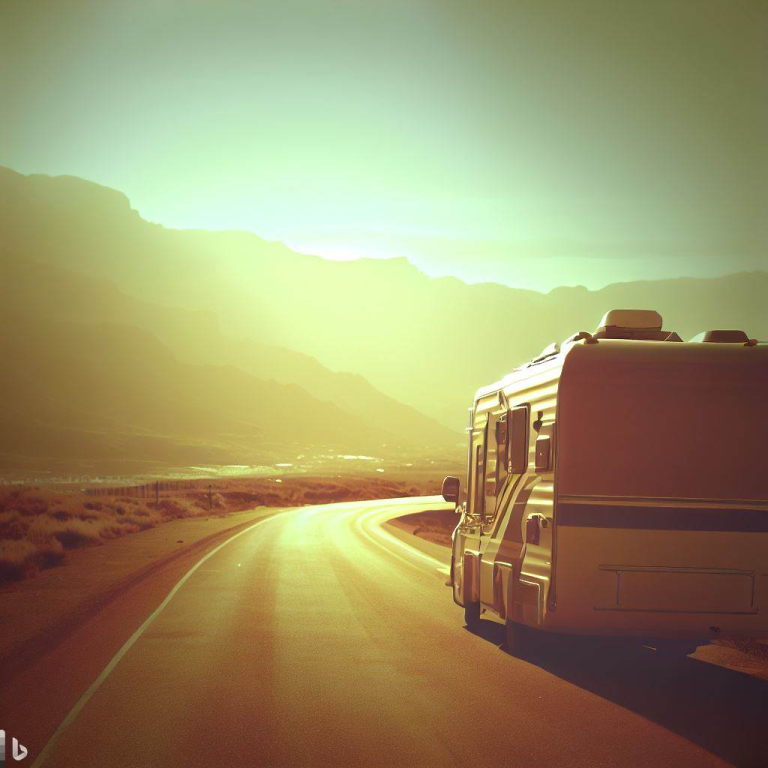Why Adventure Travel Agents Are Your Secret Weapon for Epic Trips (And How to Find the Right One)
Discover how adventure travel agents save you time, money, and stress—plus how to choose the right one for your next epic trip.
I’ll be upfront with you: for years, I thought adventure travel agents were basically travel’s version of the fax machine—technically still around, but… why? You’ve got flight apps, booking sites, Google Maps, and that one friend who “totally knows a guy” for everything. What else do you need?
Then I tried planning a multi-country trekking trip through Patagonia completely on my own.
Forty-seven browser tabs later, I was neck-deep in bus schedules, permit rules, weather windows, and wildly conflicting blog advice. I almost booked a “luxury eco-lodge” that, based on later reviews, appeared to be half lodge, half disappointed barn. That was the moment I admitted it: maybe, just maybe, adventure travel agents aren’t obsolete after all.
Adventure travel agents specialize in crafting the kind of trips you brag about for years—summit climbs, jungle expeditions, desert crossings—while quietly saving you time, money, and at least three potential meltdowns.
What Exactly Do Adventure Travel Agents Do? (Besides Make You Look Like a Planning Genius)
Here’s the thing about adventure travel: it’s not like booking a beach resort where your toughest choice is ocean view versus garden view. Real adventure involves moving parts. Lots of them.
You’re juggling permits, trail quotas, seasonal closures, gear requirements, local guides, insurance, safety protocols, and logistics that sometimes feel like a logic puzzle designed by someone who hates free time.
Adventure travel agents exist specifically for this world. They focus on active, experiential trips—think mountain climbing, safaris, multi-day treks, kayaking expeditions, cycling tours, and wilderness trips where “room service” is you boiling water for instant coffee at sunrise.
Unlike generic travel agents who might spend most of their time booking cruises or city breaks (no shade, those have their place), adventure travel agents live and breathe this niche. Many of them aren’t just booking expeditions—they’re out there doing them.
According to the Adventure Travel Trade Association’s 2022 industry report, the global adventure travel market was valued at roughly $586 billion, with projected annual growth around 17.4% through 2030. That’s not a tiny side category—that’s a lot of people lacing up hiking boots and signing liability waivers.
How Adventure Travel Agents Differ from Regular Travel Agents
I’ve worked with both types, and the contrast is pretty stark.
A regular travel agent might book you a hotel in Nepal.
Adventure travel agents will:
- Connect you with a Sherpa guide who’s summited Everest multiple times.
- Arrange the correct trekking permits and TIMS cards.
- Build in acclimatization days so you don’t destroy yourself on day two.
- Confirm that your travel insurance actually covers high-altitude trekking (spoiler: a lot of standard plans don’t).
My cousin learned this the hard way when she booked what she thought was a “light hiking trip” in Peru through a regular agent. She ended up on the Inca Trail in running shoes, no trekking poles, and an insurance policy that specifically excluded anything over 2,500 meters. She survived—but I’m not sure her knees ever forgave her.
Adventure travel agents tend to know these trips inside out. Many have hiked the same routes, stayed in the same mountain huts, and eaten the same questionable freeze-dried meals they’re recommending to you. They’re not just repeating marketing copy—they’re translating real experience into solid advice.
Why You Might Actually Need an Adventure Travel Agent (Even If You’re a DIY Trip Person)
I’m one of those people who loves planning. I color-code itineraries. I make packing spreadsheets. I feel personally attacked when Google Maps suggests a route I didn’t consider.
But even as an enthusiastic planner, I’ve learned there’s a big difference between booking a weekend city break and organizing a 10-day trek in a remote region where the phrase “backup option” doesn’t really apply.
1. Adventure Travel Agents Unlock Experiences You Can’t Click-and-Book
Here’s a fun plot twist: some of the best experiences in adventure travel are not bookable on big travel sites.
A lot of small, local operators don’t list their trips on the usual platforms. Some protected areas require permits that are only released through approved agencies. Certain private reserves, remote lodges, or conservation-focused tours only work with vetted adventure travel agents.
When I decided I wanted to track mountain gorillas in Rwanda, I naively assumed it was just a matter of paying online and showing up with a camera. Turns out, permits are tightly limited, dates book out months in advance, and the process is… let’s say “not designed for convenience.”
My adventure travel agent already had relationships with local partners. She secured the permit, confirmed the trek date, and arranged transfers so smoothly I almost didn’t notice how complicated it actually was.
Standing in the misty forest, watching a silverback casually demolish a stalk of bamboo about ten feet away, I had this very clear thought: there is absolutely no way I would’ve pulled this off on my own without a lot of stress and several wrong turns.
2. They Save You an Absurd Amount of Time
The American Society of Travel Advisors found that travelers who use agents save an average of four hours per trip on planning. That sounds cute until you realize that’s probably a conservative estimate for complex adventure trips.
When I tried to DIY Patagonia, I spent entire evenings comparing bus routes, park entry rules, “best” months (which five different blogs violently disagreed on), and gear lists that ranged from “bring a light jacket” to “prepare for mild polar conditions.”
An experienced adventure travel agent has already done that homework—and then some. They know:
- Which trails match your fitness level.
- Which operators are reputable versus “my cousin bought a van and now we run tours.”
- How to avoid wasting days on bad connections or redundant routes.
- When to build in rest days so you don’t crash halfway through your trip.
That’s not just time saved—it’s decision fatigue avoided. And honestly, I’d rather spend my limited pre-trip energy training for a trek than decoding a bus timetable in my third language.
3. They’re Your Safety Net When Things Go Sideways
Adventure travel comes with risk. That’s part of the appeal—but it also means things can change quickly.
Weather shuts down mountain passes. Political situations shift. Airlines cancel flights. Your ankle decides to try a new, exciting angle halfway through day three.
During a kayaking trip in Belize, I discovered I’m intensely allergic to something in the jungle. Within an hour, my face was puffy, my breathing was weird, and my brain was composing dramatic goodbye messages.
Because I’d booked through a specialized adventure travel agent, I had a clear emergency contact protocol. One call later, the local partner had a doctor headed to the lodge, my itinerary was rearranged to give me recovery time, and the activities I’d miss were partially refunded.
If I’d booked that piecemeal on random websites? Best-case scenario, I’d be on hold with customer service while my face slowly expanded.
4. They Can Actually Save You Money
It sounds backwards, I know. Pay someone so you can spend less?
But here’s the thing: adventure travel agents have access to contracted rates, local relationships, and real insight into what’s worth paying for—and what’s absolutely not.
The U.S. Travel Association has reported that people who use travel agents often save 10–15% on complex itineraries compared with booking every element solo. When you’re talking about a $4,000–$6,000 adventure, that’s not pocket change.
My friend Dave is the king of budget travel. This is a man who pre-calculates the value of a hotel breakfast buffet down to the price-per-egg. Even he now uses an adventure travel agent for bigger trips. On a two-week cycling tour in Vietnam, his agent saved him roughly $800 by:
- Avoiding a wildly overpriced domestic flight.
- Steering him away from a needlessly fancy bike rental.
- Bundling his accommodations with a local operator at a lower contracted rate.
He still tells people he “found a great deal,” of course. But between you and me? The deal had a name and an email signature.
The Different Types of Adventure Travel Agents (Because One Size Definitely Doesn’t Fit All)

Once you start looking into adventure travel agents, you realize they’re not all doing the same thing. That’s actually a good thing—it means you can find someone who fits the exact kind of trip you’re dreaming about.
Generalist Adventure Travel Agencies
These are the big, broad adventure brands you’ve probably heard of: companies that run trips on multiple continents with itineraries spanning everything from soft adventure to full-on expeditions.
They’re a great fit if:
- You’re fairly new to adventure travel.
- You want a mix of activities (say: hiking, kayaking, wildlife viewing).
- You like the idea of group trips with built-in logistics and social structure.
My first “real” adventure trip was through a generalist agency in Costa Rica. Two weeks of hiking, zip-lining, river rafting, and spotting more sloths than I knew the world possessed. I had no idea what I was doing, and I didn’t have to—they walked me through every detail from packing lists to tipping norms.
Specialist Adventure Travel Agents
These are the deep nerds of the adventure world—and I say that with admiration.
Specialist adventure travel agents focus on a narrow slice of the market. That might mean:
- One activity (mountaineering, diving, long-distance cycling).
- One region (the Alps, Patagonia, East Africa).
- One style of trip (polar expeditions, technical climbs, long thru-hikes).
When I planned a climbing trip in the Dolomites, I worked with an agent who lives and breathes European alpine routes. She knew which via ferrata felt more exposed than the photos suggested, which mountain huts had legendary apple strudel, and which “quiet” routes were lying.
That kind of nuanced intel doesn’t come from five minutes of Googling. It comes from years of boots-on-the-ground experience—and it makes a huge difference when you’re pushing your comfort zone.
Luxury Adventure Travel Agents
Yes, you can absolutely combine “luxury” and “adventure” without the universe imploding.
Luxury-focused adventure travel agents design trips where you spend the day doing properly wild things—tracking wildlife, hiking remote trails, flying in tiny planes—and then return to hot showers, excellent bedding, and meals that don’t come in dehydrated pouches.
I once joined a friend on a last-minute spot she had for a luxury safari in Botswana (her sister got sick; I heroically volunteered). We spent the days tracking elephants and lions on foot with expert guides, and the evenings watching the sunset with chilled champagne and three-course dinners.
Same level of adventure, significantly more thread count.
These kinds of adventure travel agents tend to:
- Work with high-end lodges and camps.
- Arrange private guides and custom routes.
- Add touches like helicopter transfers or exclusive access to certain areas.
If you want your trips to feel both raw and refined, this niche is your sweet spot.
Online Adventure Platforms with Agent-Level Support
In recent years, a hybrid category has emerged: online platforms that connect you to local adventure operators but still offer some of the guidance an agent provides.
Sites like Much Better Adventures or Explore-Share fall into this space. They usually:
- Vet local guides and operators.
- Standardize trip info so you can compare options.
- Provide some customer support if issues pop up.
I’ve used platforms like these for shorter, lower-risk adventures where I didn’t need full, custom planning—but I still wanted someone to have done at least minimal due diligence on the operator.
They’re not a replacement for a true, one-on-one adventure travel agent, but they do sit in that middle ground between DIY and “please handle everything for me.”
How to Find the Right Adventure Travel Agent for Your Trip
Once you’re sold on the idea of using adventure travel agents, the next question is obvious: okay, but how do you pick one?
It’s a bit like dating. You’re looking for compatibility, shared values, and someone who won’t leave you stranded when things get weird.
Look for Real Credentials (Not Just Pretty Branding)
Professional adventure travel agents often hold certifications or belong to organizations like:
- Adventure Travel Trade Association (ATTA)
- American Society of Travel Advisors (ASTA)
- Specialized bodies for diving, mountaineering, or guiding
Those acronyms might not mean much at first glance, but they signal a baseline of professionalism. ATTA, for example, emphasizes safety and sustainability—two things you really want baked into any serious trip.
After seeing the impact of over-tourism on some trekking routes in Nepal—eroded paths, overflowing trash, villages struggling with uneven tourist income—I’ve become much more intentional about working with people who prioritize responsible travel. Certifications aren’t everything, but they’re a decent starting filter.

Ask About Their Personal Adventure Experience
One of my non-negotiables when evaluating adventure travel agents is simple: have you actually done this sort of thing yourself?
That doesn’t mean they’ve climbed every peak on earth. But if someone is selling technical mountaineering trips and has never worn crampons, I’ve got questions.
When I was considering an African safari, I asked one agent to tell me about her own experience in the region. She launched into a story about a mock elephant charge in Zambia, complete with hand gestures, sound effects, and a very candid confession about how terrified she’d been.
She talked about the difference between dry season and green season, what it feels like to wake up and hear lions calling nearby, and why leopard sightings are somehow even more impressive in person.
That conversation did more to earn my trust than any glossy brochure could.
Read Independent Reviews and Ask for References
Testimonial pages are nice, but they’re curated. I always look for:
- Google reviews or Trustpilot feedback.
- Mentions in adventure travel forums or Facebook groups.
- Trip reports where travelers name the agent or company they used.
If I’m planning something expensive or logistically intense (think: Antarctica, multi-week treks, remote regions), I’ll ask the agent directly, “Could you connect me with one or two past clients who did a similar trip?”
A good adventure travel agent won’t flinch at that question. They’ll have people who are genuinely happy to talk.
Pay Attention to Their Communication Style
You’re trusting this person with a lot: your money, your time off work, your safety, your bucket list dreams. How they communicate with you matters.
Early on, watch for things like:
- Do they respond within a reasonable timeframe?
- Do they answer the actual question you asked—or do you get vague, copy-paste vibes?
- Do they listen when you say “I have X budget” or “I’m nervous about Y,” or do they bulldoze past it?
I once had a consult with an agent who spent the entire call talking over me and insisting I’d “be fine” on a trip I clearly said I wasn’t ready for physically. Technically, she knew her stuff—but I didn’t trust her with my trip.
By contrast, my current agent asks really sharp follow-up questions:
- “When you say you’re active, what does that look like in a typical week?”
- “How do you usually handle altitude, early mornings, or long travel days?”
- “On past trips, what felt like too much—or not enough?”
Those questions sound small, but they’re how you end up on the right trail instead of the wrong mountain.
Get Clear on Fees and What’s Included
Great adventure travel agents are upfront about how they get paid.
Some common models:
- A flat planning fee (often based on trip complexity).
- Commission from operators, with no extra cost to you.
- A hybrid of the two, especially for custom or luxury itineraries.
Ask simple, direct questions like:
- “How do you charge for your services?”
- “What’s included in this quote, and what isn’t?”
- “Are there any fees I should know about if I need to change or cancel?”
If someone can’t explain their pricing clearly, that’s a red flag. Money conversations don’t have to be awkward. You’re allowed to understand exactly what you’re paying for.
What It’s Actually Like to Work with Adventure Travel Agents
If you’ve never worked with an adventure-focused agent before, the whole process can feel a bit mysterious. In practice, it usually follows a pretty logical flow.
Step 1: The Initial Deep-Dive Chat
Most adventure travel agents start with a longer call or detailed questionnaire. This is where they gather the raw material:
- Where you want to go (or at least the general vibe).
- How much time you have.
- Your realistic budget.
- Your fitness level and comfort zone.
- Any non-negotiables (“must see gorillas,” “need private room,” “no shared bathrooms ever”).
This is the time to be honest. If your current fitness routine is “occasionally remembering to take the stairs,” say that. It doesn’t disqualify you from adventure—it just shapes the kind of trip they’ll suggest.
On my first call with my now go-to agent, I admitted that I’m weirdly scared of cable cars but fine with steep hiking. Instead of trying to talk me out of it, she just said, “Got it. We’ll lean into solid ground adventures.” Bless her.
Step 2: The Custom Proposal
After that initial discovery phase, your agent will usually come back with one or more proposed itineraries.
A solid adventure trip proposal generally includes:
- A day-by-day breakdown of the route and activities.
- Difficulty level and any fitness recommendations.
- Accommodation details (with photos or links).
- What’s included (meals, transfers, gear, permits, guides).
- What’s not included (flights, tips, some meals, personal gear).
- Pricing and payment timelines.
This is your chance to tweak things. Want an extra rest day? Prefer guesthouses over tents? Want to add a side trip to a nearby city or park? Adventure travel agents expect you to have opinions—that’s the point of working with a human, not just clicking “book now.”
Step 3: The Booking and Prep Phase
Once you give the green light, your adventure travel agent turns into a logistics ninja.
Behind the scenes, they’re:
- Reserving spots with local operators and guides.
- Securing permits (which can be a whole saga on their own).
- Coordinating internal flights, transfers, and accommodations.
- Double-checking seasonal factors and adjusting as needed.
On your end, you should receive:
- A clear payment schedule.
- A packing list tailored to that exact trip.
- Training or preparation tips if the route is demanding.
- Insurance recommendations (and sometimes policy options).
Before my Kilimanjaro climb, my agent sent me a 20-page prep guide that covered everything from blister prevention to mental pacing on summit night. It felt slightly overkill at the time. Then I hit 5,000 meters and thought, “Right. This is why we over-prepared.”
Step 4: Support While You’re Actually Out There
You won’t be messaging your agent every day while you’re in the backcountry (hopefully), but knowing they’re in your corner makes a difference.
Good adventure travel agents:
- Have local partners on the ground.
- Give you clear emergency contacts.
- Sometimes check in by message when you’re between stages of a trip.
When volcanic ash shut down flights across part of Europe years ago, my agent rerouted me home via a creative combination of buses, ferries, and one very early-morning flight. While other travelers were stuck sleeping in airport chairs, I had a (slightly chaotic but functional) plan.
Step 5: The Post-Trip Debrief
After you get home, most pros will reach out to ask how it went.
They’re not just fishing for compliments—good feedback helps them:
- Fine-tune future recommendations for you.
- Adjust which local partners they trust.
- Improve their trip materials.
I’ve had post-trip calls where we dug into tiny details: which lodge had the best food, whether “moderate” felt accurately described, what surprised me most, and what I’d skip next time.
Those conversations are why my later trips have felt spookily tailored—like my agent can read my mind, or at least my packing list.
Common Mistakes People Make with Adventure Travel Agents
Nobody likes learning the hard way. So here are a few pitfalls I’ve seen (and occasionally stepped directly into).
Treating Price as the Only Deciding Factor
Look, I love a good deal as much as the next person. But with adventure travel, “cheapest” can quickly turn into “most regrettable.”
If one quote is dramatically lower than all the others, it usually means something is missing:
- Less experienced guides.
- Weaker safety protocols.
- Crowded routes or subpar accommodations.
- Hidden costs that show up later.
You don’t need the most expensive option, but you also don’t want a bargain-basement expedition when your safety, comfort, and once-in-a-decade experience are on the line.
Not Being Honest About Fitness or Comfort Level
Adventure travel agents aren’t there to judge your cardio routine. They’re there to match you with something you’ll actually enjoy.
If you oversell your abilities to sound “adventurous,” you can end up on a trip that’s more survival challenge than vacation. I watched a guy get helicoptered out of a high-altitude trek because he’d told his agent he was “pretty fit” when his actual training routine was “carrying groceries once a week.”
You don’t get extra points for suffering.
Skimming the Fine Print
Nobody wants to read cancellation policies and insurance clauses, but adventure trips often have stricter terms than regular vacations.
Pay attention to:
- Deposit terms and refund windows.
- Minimum group sizes (and what happens if they’re not met).
- What happens if weather or conditions force a route change.
I once lost a hefty deposit because I assumed I could shift dates easily. That was an expensive way to remember that assumptions are not, in fact, policies.
Ignoring Your Gut
Even if someone looks perfect on paper—great reviews, impressive certifications—if their communication feels off or you feel pressured, listen to that.
You want an adventure travel agent who:
- Respects your boundaries.
- Welcomes questions.
- Never makes you feel dumb for asking.
There are plenty of excellent agents out there. You don’t need to settle for someone who gives you a weird vibe just because their Instagram is pretty.
The Future of Adventure Travel Agents
Given how easy it is to book flights and hotels online, you might wonder if adventure travel agents are on their way out.
Honestly? From what I’ve seen, they’re more relevant than ever—especially for the complicated, off-the-grid, “I want to do something big this year” kind of trips.
The COVID-19 pandemic was a harsh, real-world experiment in what happens when travel plans suddenly implode. According to ASTA, 88% of travelers who used agents during that time said they were more likely to use one again in the future.
When borders closed and flights vanished, people who’d booked independently were stuck juggling dozens of separate bookings. Travelers who used adventure travel agents? They had someone whose entire job was “untangle this mess.”

Tech Is a Tool, Not a Replacement
Modern adventure travel agents use plenty of tech—dynamic booking systems, real-time updates, digital waivers, even VR previews of certain routes.
But the reason they’re valuable isn’t software. It’s judgment.
An algorithm can show you the cheapest flight. It can’t:
- Read between the lines when you say “I like a challenge” but mean “please don’t break me.”
- Suggest the one lesser-known trekking route that’s perfect for your shoulder season dates.
- Tell you that technically, yes, that hut is available—but everyone comes back with the same story about the plumbing.
Adventure travel agents combine tech with taste. And that combination is hard to automate.
Sustainability Is Moving Front and Center
Another big shift: more travelers care about the impact of their trips—and adventure travel agents are on the front line of that conversation.
The Adventure Travel Trade Association has found that a growing majority of adventure travelers consider sustainability when booking. Agents are responding by:
- Partnering with locally owned operators.
- Supporting conservation and community projects.
- Steering travelers away from overcrowded routes toward alternatives.
On a recent trip, my agent included a short “impact summary” in my proposal, explaining how the operator worked with local communities and what portion of my trip cost supported conservation. It wasn’t preachy—it just made me feel better about where my money was going.
Making the Most of Your Relationship with an Adventure Travel Agent
When you find a great adventure travel agent, it’s worth treating that like the beginning of a long-term partnership, not a one-off transaction.
Be the Kind of Client You’d Want to Work With
Simple things go a long way:
- Answer questions promptly.
- Be upfront about your budget and comfort level.
- Respect their time and expertise.
- Say what you liked and what didn’t quite land after the trip.
My agent has told me more than once, “It’s so much easier to go the extra mile when a client is clear, kind, and realistic.” Turns out, that applies to a lot more than travel.
Give Thoughtful Feedback
After each trip, I send a quick breakdown:
- Top three highlights.
- Anything that felt off.
- Whether the difficulty felt accurately described.
Over time, this has created a sort of “adventure profile” for me in my agent’s brain. She knows I’ll always say yes to an extra day of wildlife viewing, prefer simple places with great food over fancy ones with average meals, and will do almost anything to avoid a busy trail.
The result? Each new itinerary feels sharper and more me than the last.
Think Beyond Just One Trip
The real magic happens when your adventure travel agent isn’t just planning your next vacation—they’re quietly helping you shape a whole arc of experiences over years.
Maybe that looks like:
- Starting with a moderate trek.
- Building toward a higher-altitude route.
- Eventually tackling a big, life-list expedition.
I never sat down and said, “Let’s map out my next decade of adventures,” but looking back, that’s essentially what we’ve done—one thoughtfully chosen trip at a time.
Final Thoughts: Are Adventure Travel Agents Really Worth It?
If you’re booking a simple city break or a long weekend at the beach, you probably don’t need help. A couple of tabs, a credit card, done.
But if you’re dreaming about the kind of trip that:
- Requires permits or quotas.
- Takes you well off the usual tourist grid.
- Involves real physical effort and some risk.
- Doubles as a “this might be one of the biggest things I ever do” experience—
—then adventure travel agents are very often worth every penny.
They won’t remove all uncertainty (that’s part of the point of adventure), but they will:
- Stack the odds in your favor.
- Catch issues you wouldn’t think to look for.
- Advocate for you when something goes sideways.
- Help you use your hard-earned time and money well.
Personally, after my solo attempt at planning Patagonia, I promised myself this: I’ll still obsess over routes and read way too many trip reports—but for serious adventures, I’m looping in a pro.
I’d rather spend my energy getting ready for the trail than untangling booking policies in my inbox at midnight.
So if there’s a big trip sitting in the back of your mind—Kilimanjaro, Antarctica, a long trek in the Alps, gorillas in Rwanda—it might be time to talk to one or two adventure travel agents, ask all the questions, and see what they sketch out for you.
Worst case, you get a clearer sense of what’s involved. Best case? You end up standing somewhere you’ve only ever seen in photos, realizing that letting an expert help was the smartest part of the whole plan.

